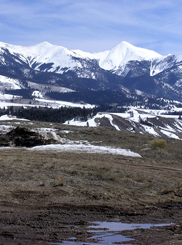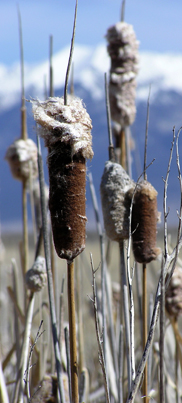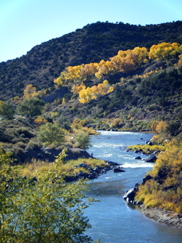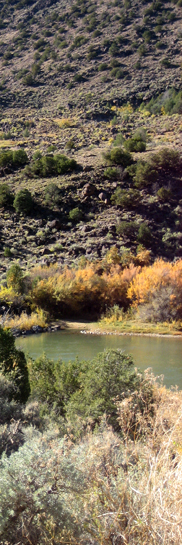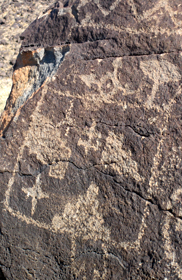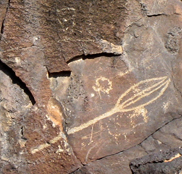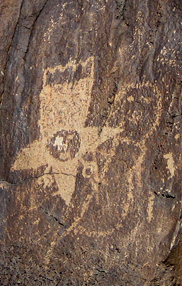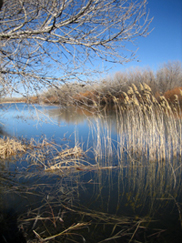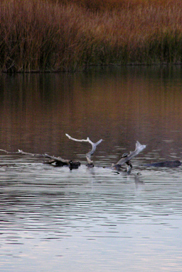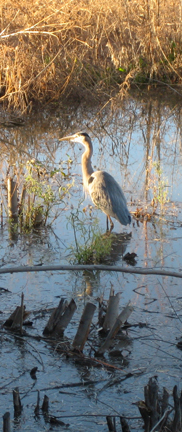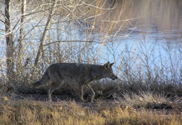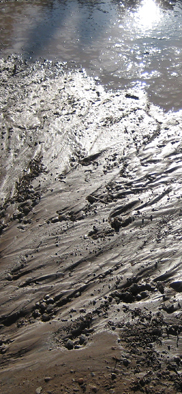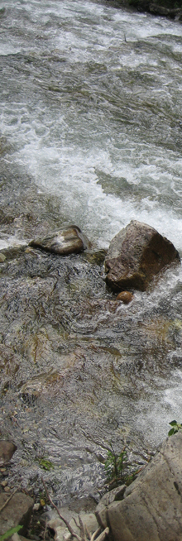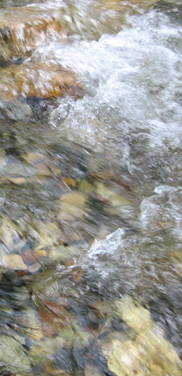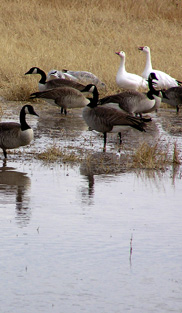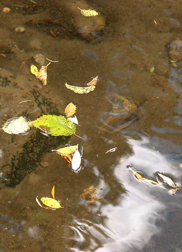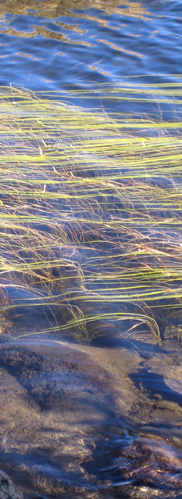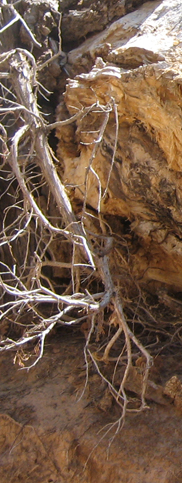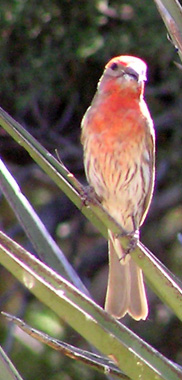April 1–3, 2011 • National Hispanic Cultural Center
Albuquerque, New Mexico
Free and open to all
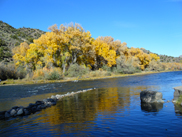 Thanks to everyone who helped with and attended the festival. We hope you all have come away with an increased awareness and appreciation of our deep ties to the Rio Grande and to each other. Download the press release Thanks to everyone who helped with and attended the festival. We hope you all have come away with an increased awareness and appreciation of our deep ties to the Rio Grande and to each other. Download the press release
Friday, April 1 |
Festival begins
at 7:00 pm |
7:00 pm
Opening celebration of El Río del Corazón |
Beloved Albuquerque poet E.A. ‘Tony’ Mares reads from and discusses, his new chapbook of poems addressing the physical and cultural landscape of the Rio Grande Corridor. With music from Frank McCulloch y Sus Amigos, a special presentation by young poets of the Rio Grande, and a display of art focused on the river. |
Saturday, April 2 |
All-day events |
10:00 am–11:15 am
two concurrent sessions |
The Story of An Acequia by Estevan Arellano. The acequia system is a vital part of New Mexico’s past and present, reflecting not just land-use practices but also local customs, social structures, and community values. This presentation will focus on the Acequia Junta y Ciénega in Embudo, which dates back to the late 1770s. Approximately 2.5 miles in length from the presa to the desague, where it empties into the Río Grande, the Acequia Junta y Ciénega serves 37 parciantes and irrigates 80 acres of orchards, alfalfa and gardens. This presentation will be conducted in traditional resolana format, encouraging dialogue among all participants. |
| “The Young Naturalist” is a hands-on workshop for kids age 6 and up, exploring the ecology of the cottonwood bosque. Conducted by the Friends of the Rio Grande Nature Center.Space is limited; please email sonya@voicesfromtheamericanland.org to reserve your spot. |
11:30 am–12:45 pm
two concurrent sessions |
Watersheds as Commons: Jack Loeffler. Although originally forwarded to the U.S. Congress by John Wesley Powell, the concept of “watersheds as commons” is embedded in virtually every Native American traditional point of view regarding the relationship of culture to homeland. Powell’s idea was to organize the arid West beyond the hundredth meridian as a mosaic of commonwealths based on watersheds governed from within, rather than the hodgepodge of geopolitical boundaries that currently prevails. Included in Loeffler’s presentation will be excerpts from recorded interviews he has conducted, including the voices of Garrett Hardin, Elinor Ostrom, William deBuys, Rina Swentzell, Gary Snyder and others. |
| Restoring the Rio Grande Bosque: Cyndie Abeyta. Since the early 1990’s, grave concern for the Rio Grande and its riparian forest, the bosque, in New Mexico’s central Rio Grande valley initiated Congressional support for interagency ecosystem management efforts to coordinate activities related to the ecological restoration and management of the Middle Rio Grande. This presentation will focus on how natural resources management agencies, stakeholders and the general public have worked together to protect, enhance, and restore biological values within the Middle Rio Grande. Included in Abeyta’s presentation will be the showing of the short film Restoring a Legacy: The Rio Grande Bosque. |
1:30 pm–2:45 pm
two
concurrent sessions |
Rio Grande: An Environmental History, with Steve Harris. The speaker will explore the evolution of Rio Grande hydrology, ecology and the historical institutions of control and governance that have transformed the river from a life support system to an economic engine, and suggest its trajectory for the future. |
Writing the Rio: A Poetry Writing Workshop with Sawnie Morris. 1:30–4:15. For those of us who live in the Río Grande watershed, our life — like the river — is formed and informed by a collage of elements: community and culture, the riparian zone and the uplands. Poems, too, are shaped by influences and confluences. As Octavio Paz said, “The poem is a shell that echoes the music of the world.” In this workshop we will go to the imaginative banks of the Rio Grande — and some of us may even choose to visit the nearby river itself (dress accordingly). Bring pen & paper. Space is limited and pre-registration is strongly recommended. Email sonya@voicesfromtheamericanland.org to reserve your spot. |
3:00 pm–4:15 pm
two
concurrent sessions |
Panel Discussion with Sara Marie Ortiz, Anders Lundahl, Estevan Arellano, & Jack Loeffler. Distinguished panelists will address the question, “What does the Rio Grande Mean to Our Diverse Communities?” The audience will be encouraged to contribute their own observations and experiences.
|
| —Sawnie Morris, poetry workshop, “Writing the Rio” continues |
| 7:00 pm |
Three Poets of the Rio Grande: Sawnie Morris, Sara Marie Ortiz, & Levi Romero celebrate this landscape in an evening of poems and stories. These accomplished poets are renowned for their knowledge of and love for the region, as well as for their dynamic performance styles. |
Sunday, April 3 |
All-day events |
10:00 am–11:15 am
two concurrent sessions |
“GREEN FIRE” screening: Aldo Leopold and a Land Ethic for Our Time. This film examines the personal journey of Aldo Leopold, known as the father of the conservation movement, and follows the threads that connect to his legacy today. Author of A Sand County Almanac and the well-known essay “Thinking Like a Mountain,” Leopold was responsible for designating the Gila National Forest as the country’s first official Wilderness Area. The film provocatively examines Leopold’s thinking, renewing his idea of a land ethic for a population facing 21st century ecological challenges. |
| Presentation, “Our Land, Our Stories: A Cultural History of the Rio Grande” 10:00 am–12:45 pm. Check back for details. |
11:30 am–12:45 pm
two concurrent sessions |
Aldo Leopold in New Mexico, with Jack Loeffler. Aldo Leopold first came to the Southwest in 1909, and it was here that his notion of ecological restoration began to take hold. Loeffler, a long-time New Mexican and friend of the Leopold family, produced a one-hour radio documentary entitled “Aldo Leopold and the Emerging Land Ethic.” In this presentation he will share excerpts of interviews conducted for that program, as well as address Leopold’s enormous contribution to the conservation movement found in his essay, “The Land Ethic.” The talk will pay particular attention to Leopold’s relationship to the Rio Grande Corridor. |
| —“Our Land, Our Stories” presentation continues |
1:30 pm–2:45 pm
two concurrent sessions |
Place Names of the Rio Grande: Bob Julyan. In a region as storied as this, the names of places can reveal as much about culture as they do about the landscape. Many places have had multiple names in various languages, revealing their long settlement history. In this talk, which uses humor and emphasizes local examples, Julyan tries to show how place names reveal the history and values of the people who have lived in an area. The talk ends with a question and answer period, and Bob will be available after the talk to speak with interested persons individually. |
| Young Writers Forum: El Palabra y El Rio, with Sara Marie Ortiz. This reading/presentation/discussion by and between younger New Mexican writers will address issues surrounding the relationship between the river, land, community, art, advocacy, and sustainability for the new century. Special attention will be given to the significance of the youth voice in protecting and promoting land and community via the arts/literature, and developing strategies for getting other youth inspired to participate in this vital effort. 1:30–4:15 |
3:00 pm– 4:15 pm
two concurrent sessions |
Birds of the Rio Grande Bosque with Renata Golden.. This presentation will feature provocative essays by Renata Golden that focus on the wonders of the bird world, accompanied by a slide show of black and white photographs of birds in flight at Bosque del Apache by acclaimed Santa Fe photographer Krista Elrick. After the reading, Katherine Eagleson, Executive Director of The Wildlife Center in Espanola, will exhibit live birds that the Center has rehabilitated. These birds of prey, such as the Long-Eared Owl and Western Screech Owl, rely on Rio Grande Bosque habitat for roosting and adjacent open fields for hunting. They will be ample time for questions from the audience.
|
| Sara Marie Ortiz host a young writers’ forum: “El Palabra y El Río” continues from 1:30 pm |
The Presenters |
E. A. “Tony” Mares, PhD, is a poet, historian,
essayist, and fiction writer. His books include: The Unicorn Poem & Flowers and Songs of Sorrow (West End Press); With the Eyes of a Raptor (Wings Press); and translations of Spanish poet Ángel González, (Wings Press, 2007). He co-authored, with Tomás Atencio and Miguel Montiel, Resolana: Emerging Chicano Dialogues on Community and Globalization (University of Arizona Press, 2009). His book of poetry, Conversations I Never Had With Patrociño Barela, was published in Fall, 2010 by University of New Mexico Press. |
 |
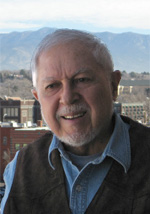
|
Sara Marie Ortiz is an Acoma Pueblo memoirist, poet, scholar, youth trainer, aspiring filmmaker, and Indigenous Peoples advocate. She received her BFA from the Institute of American Indian Arts (2006) and her MFA in Creative Writing from Antioch University Los Angeles (2009). Ms. Ortiz has served as co-coach of the Santa Fe Indian School Spoken Word Team and has received numerous writing awards, among them the Truman Capote literary fellowship (2003), the American Indian Graduate Center fellowship (2007-2009) and the Catching the Dream scholarship. Her work has been published in The Kenyon Review and other places. |
|
 |
Jack Loeffler is an aural historian, radio producer, and writer. His interests include restoration and preservation of habitat, and the relationships of indigenous cultures to homeland, among others. Loeffler is the author of numerous books including Healing the West: Voices of Culture and Habitat; his current radio series/book project is entitled Thinking Like a Watershed. He is the recipient of a New Mexico Governor’s Award for Excellence in the Arts, and the Edgar Lee Hewett Award for Writing from the New Mexico Historical Society. In 2009 he was honored as a Santa Fe Living Treasure. For more information, please visit www.loreoftheland.org. |
|
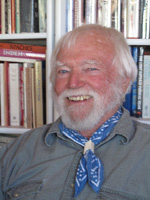
|
Sawnie Morris received the prestigious 2010 Poetry Society of America’s George Bogin Memorial Award for a selection of her poems. Her writing has also won a Texas Pen Literary Award, and the National ACLU Creative Non-Fiction Prize. Her chapbook of poems, Matapolvo Rain, appears in The Sound A Raven Makes, winner of the 2007 New Mexico Book Award. She teaches literature and poetry writing at the University of New Mexico-Taos, and is co-founder and current Assistant to the Director of Amigos Bravos, a 23 year old non profit river protection organization for the Rio Grande watershed. |
|
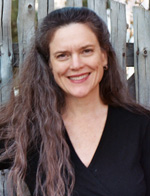
|
Levi Romero has recently been named Centennial Poet for New Mexico. The author of “A Poetry of Remembrance: New and Rejected Works,” UNM Press, and “In the Gathering of Silence,” West End Press, and other publications, he is from the Embudo Valley of northern New Mexico. Romero is a bilingual poet whose language is immersed in the regional 'manito dialect of northern New Mexico with its 17th century archaisms and melodic registers. His work has been published throughout the United States, Mexico, Spain, and Cuba. Although he holds degrees in architecture, his interests lie in the function of stories in preserving the cultural landscape of New Mexico.
— Photo credit Jeana Rodarte Romero |
|
.jpg)
|
Steve Harris of Pilar, NM, has been a student of the history and natural history of Southwestern Rivers since 1975. He is president of a river outfitting business, Far-Flung Adventures, and executive director of the basin-wide streamflow advocacy group, Rio Grande Restoration. A single father of three, Steve speaks and writes on water policy, ecological restoration, river and flood rescue/mitigation, eco-adventure travel, and other river issues. He has served on a number of public water resource programs, including the New Mexico Soil and Water Conservation Commission and the Middle Rio Grande ESA Collaborative Program's Water Acquisition and Management subcommittee. |
|
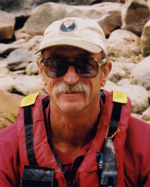 |
Cyndie Abeyta is a hydrologist and Middle Rio Grande Coordinator for the U.S. Fish and Wildlife Service where she manages programs working with numerous agencies, communities, stakeholders, and concerned citizens towards protecting and restoring the Middle Rio Grande. Cyndie also manages and conducts hydrologic investigations, provides technical guidance on the hydrology of the Rio Grande, and is author of numerous scientific reports. In 2006, Cyndie received the U.S. Department of the Interior, Manuel Lujan Jr. Champions award for her outstanding work in carrying out the department’s mission in areas that impact communities. |
|
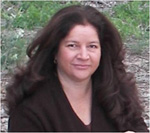 |
Bob Julyan is the author of The Place Names of New Mexico. Published by the University of New Mexico Press in 1996, this book has become the standard reference for the origins, meanings, and stories behind the names of New Mexico's places – its towns, mountains, rivers, and other features. Julyan has spoken about the state's place names for the N.M. Endowment for the Humanities for 13 years, and chairs the Geographic Names Committee of the N.M. Geographic Information Council. The author of several books on area mountains, he is always eager to share information with people who have an interest in local history and geography. |
|
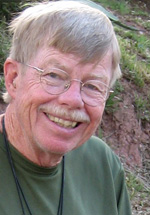 |
Poet, writer, photographer, farmer, and community leader, Juan Estevan Arellano has devoted most of his life to documenting the traditional knowledge of the Indo-Hispano in northern New Mexico, especially as it relates to land and water. A visiting research fellow in the UNM School of Architeture, he has published several books of poetry, photography and history. He has served as mayordomo and Commissioner of the Acequia Junta y Ciénaga in the northern New Mexico village of Embudo. |
|
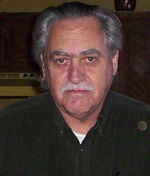 |
Anders Lundahl, a hydrologist for the New Mexico Interstate Stream Commission, focuses on Endangered Species Act/Ecosystem habitat restoration projects as well as river system management in the Middle Rio Grande Valley. Previously, he served as agricultural hydrologist for the Middle Rio Grande Conservancy District. He holds a B.S. in Geology and a Masters of Water Resources degree from UNM. He is married and is the proud father of a 5 year old daughter. |
|
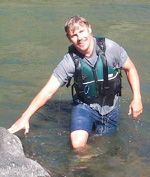 |
Renata Golden is an avid students of birds — and words. A resident of Santa Fe, she holds an MFA in creative writing from the University of Houston and has been published worldwide. She currently owns and operates Golden Ink, a technical writing company, and has completed a collection of essays tentatively titled “Bird Brained: Everything I Know I Learned from the Birds.” Feathered things with wings and beaks can be surprisingly good teachers, she finds. |
|
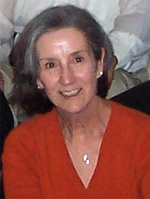 |
|

